This article was medically reviewed by Roy Nattiv, MD. Dr. Roy Nattiv is a Board-Certified Pediatric Gastroenterologist in Los Angeles, California. With over 20 years of experience he specializes in a broad range of pediatric gastrointestinal and nutritional illnesses such as constipation, diarrhea, reflux, food allergies, poor weight gain, SIBO, IBD, and IBS. He completed his pediatric residency at the Children’s Hospital at Montefiore, Albert Einstein College of Medicine in New York, and his fellowship at the University of California, San Francisco (UCSF). While at UCSF, he was a California Institute of Regenerative Medicine (CIRM) fellowship trainee and was awarded the North American Society for Pediatric Gastroenterology, Hepatology, and Nutrition (NASPGHAN) Fellow to Faculty Award in Pediatric IBD Research. Dr. Nattiv received his undergrad degree from the University of California, Berkeley, and his medical degree (MD) from the Sackler School of Medicine in Tel Aviv, Israel.
There are 8 references cited in this article, which can be found at the bottom of the page.
This article has been viewed 22,360 times.
Crohn's disease is an inflammatory bowel disease (IBD) that affects the gastrointestinal tract, causing a variety of often painful symptoms. Maintaining a regular, nutritious diet is a key part of managing Crohn’s disease, as some foods aggravate symptoms. Adequate nutrition is critical to the promotion of healing. Sufficient protein and calories must be provided, but in a manner that limits the stress put on an inflamed bowel. For many people with Crohn’s, going out to eat can pose a stressful challenge in terms of both dietary restrictions and symptom management. Fortunately, with a little planning, eating out can be an enjoyable experience for anyone with Crohn’s disease.[1]
Steps
Finding the Right Environment
-
1Select your restaurant beforehand. It pays to do your homework and choose a restaurant before you even leave your house. This ensures that you’ll know exactly what you’re getting into and what sort of environment and food options you’ll be presented with. Also, if you need any accommodations, choosing your restaurant beforehand will allow you to call and make appropriate arrangements.[2]
- If you’re going out with a group, suggest three restaurants that you think will work well with your Crohn’s disease and let the group pick which restaurant everyone will go to.
- If you don’t have input about which restaurant you’re going to, make sure to call the restaurant beforehand and ask any pertinent questions that you might need answered.
-
2Review the menu. If you’ve chosen a particular restaurant, look up the menu online beforehand. Reviewing the menu before you go will give you plenty of time to look through all of your options. If the menu isn’t online, don’t hesitate to call the restaurant and ask them to email you a copy.[3]Advertisement
-
3Plan for substitutions. After you’ve looked over the menu, decide what you’d like to eat and also if you will need to request any modifications or substitutions.[4]
- Contact the restaurant beforehand to confirm that they will make substitutions and modifications.
- Also ask if there is any fee or increased charge for substitutions.
-
4Educate your servers. Your server is your liaison between you and the kitchen staff and they want to make sure that you, their guest, have the best experience possible. Don’t be shy — communicate your needs to your server and explain that you have dietary restrictions because of a medical condition. People eat out all the time with food allergies and medical conditions, so don’t be embarrassed about speaking up.[5]
- You can say, “I have an autoimmune disorder [or you can disclose that you have Crohn’s disease] and I have to be as careful about what I eat as someone with severe food allergies. I’d like to make a few substitutions, if that’s no problem.”
- Similarly, you can print a small card and hand it to your servers that contains whatever information you’d like them to know, including your specific triggers. This is a great option because they can also show it to the chef, if necessary.
-
5Be flexible. Travelling with Crohn’s may be a bit intimidating, but with flexibility and a little preparation, it doesn’t have to be. Even if your stay away from home is unexpected, flexibility and preparation are still essential. Fortunately, much of what you’re doing already is exactly what you’d need to do when travelling, whether your travels are local, domestic, or international. Ensure that you’re always prepared medically, have the right documentation, and have a few snacks on hand.
- Always carry at least one day’s worth of your Crohn’s medications with you in a secured container and pocket.
- Make sure that you’re properly immunized, especially if you’re travelling internationally.
- If you have health insurance, verify that your policy and documentation is in order at least once per renewal period.
- Pack a snack bag full of safe, trigger-free, emergency foods that you can eat to tide you over. Consider keeping this and your medications together as a sort of emergency “go” bag.
- If you find yourself in a position without your medications or food, find the nearest grocery store or restaurant that can accommodate your dietary needs.
Choosing the Right Foods
-
1Know the basics. If you experience cramps and diarrhea, you will need to limit the fiber content of the meals.[6] If you have steatorrhea (the presence of excess fat in the stool resulting in pale bulky stools that float), you'll want to look for dishes that are low in fat. In general, milk products should especially be avoided.[7]
- Vitamin and mineral deficiencies are common and must be corrected for proper healing. Folic acid is very important as well as extra vitamin B12. Getting enough vitamin D if you have steatorrhea is crucial. An oral supplement of 4,000 IU should be sufficient.
-
2Learn about different cuisines. Every cuisine has its healthy and less healthy options, its spicy and bland options, and its sweet and savory options. Learn about different cuisines — the spices, the cooking methods, the base ingredients — and figure out which foods are potential triggers for you. This will help you avoid surprises if you’re called to eat out somewhere that you haven’t had a chance to research, such as with a lunch meeting.[8]
- For example, you know that you should avoid fried foods because that’s a trigger for you. You decide that you’d like to try Japanese food, which is delicious and great for people with Crohn’s. Stay away from tempura and enjoy sushi or sashimi instead. Japanese cuisine is also loaded with vegetables, rice, and rice noodles, making this a great option.
- Or, suppose you’d like to try Greek cuisine. Greek cuisine is fairly Crohn’s-friendly, overall, boasting a wide variety of seafood, vegetables, and low-fat cooking techniques. Consider starting with a Greek salad, enjoying a sautéed or baked seafood entrée with a side of steamed vegetables, and make sure to ask for any sauces on the side.
-
3Choose a plant-based meal. Everyone’s triggers are different and only you will know exactly what your triggers are. Err on the side of caution, though and choose a plant-based or vegetarian meal. Meat can irritate your intestinal tract, sending you to the restroom for a painful visit.
- Make sure that the vegetables are cooked as raw vegetables can also upset your intestinal tract.[9]
-
4Pick the right beverages. Carbonated and caffeinated beverages are likely to trigger your Crohn’s symptoms and are best avoided. Play it safe, since you’re eating out, and drink water.[10] This is the only beverage guaranteed not to aggravate your condition.[11]
- If someone offers you a beverage, politely decline with a simple, “Thank you! That’s kind of you, but I’m happy with my water tonight.”
- If someone offers you an alcoholic drink, you can say, “Thanks, but I have to decline – I’m driving!” Nobody needs to know exactly why you’re drinking water.
-
5Know your triggers. Every person is different and what triggers symptoms in one Crohn’s patient may not trigger symptoms in another. Unfortunately, the only way to know what your triggers are is through trial and error. You will quickly learn what foods and food groups are off limits. When you go out, you’ll know to skip over your trigger foods on the menu and focus on the foods that you can happily eat.[12] [13]
- Eating larger portions can trigger Crohn’s symptoms. Eating before you go out will help you manage your portion sizes since you won’t be as hungry and will also ensure that no trigger foods sneak into your meal.[14]
- The key is small portion sizes. Try to avoid eating full meals at any point; instead, eat two snack portions.
Adapting Your Lifestyle
-
1Choose the right dining companions. Choose dining companions that will take your Crohn’s triggers and symptoms as seriously as they should. Your companions should be excited to try new restaurants that you’ve researched and found to be Crohn’s-friendly. They should also never try to get you to eat something that would make you ill.
- Your friends may just need to be educated a little more about what Crohn’s is and isn’t, the symptoms, and your triggers.
- You can get into as much or little detail with your friends about what Crohn’s disease is and how it specifically impacts your body. You can say, “I have an autoimmune disorder called Crohn’s disease, which means my body is actually attacking its own GI tract. The symptoms can range from mild to very serious, depending on the progression of my chronic disease. Because of that, I have to be very careful about what I eat, just like someone who has a strong food allergy. This doesn’t mean I cannot go out and have a great time, but it does mean that I will need to be a bit more careful about where I eat and what I order. I’d love to tell you more about it sometime.”
-
2Consider hosting the meal at your home. Instead of going out, offer to host meals at your home now and then. If you host the meal, you can plan a menu that everyone will love that will also meet all of your dietary needs. Additionally, a meal hosted at home offers a more casual, inviting, and relaxed environment and you can make the evening last as long as you’d like rather than eat and leave, as you would in a restaurant.
-
3Be prepared to deal with Crohn’s symptoms. Some symptoms of Crohn’s are immediate and more short-lived, whereas others develop and persist over periods of time. You’ll need to ask your doctor how to address both types of symptoms. If you’re out and experience Crohn’s symptoms, treat them as you normally would. And, if you’re able to return to the table, do so. If you’re not, send a message to one of your dining companions that discreetly explains you’re not feeling well and need to get home.[15]
- You may develop a low-grade fever or find blood in your stool. Again, treat those as your doctor has advised.
-
4Reduce stress. An important lifestyle modification for people with Crohn's disease is to reduce stress as much as possible.[16] Emerging research suggests that our thoughts, nervous system, and bodily functions are deeply interconnected. Doing your research on restaurants ahead of time can help reduce any stress or anxiety you may feel about eating out.[17]
- If you find yourself becoming stressed out or overwhelmed, deep breathing is an effective way to deal with it in the moment. Take deep, slow breaths, making sure your belly and not your chest rises with each inhalation. Exhale slowly and repeat until you begin to feel calm.
Expert Q&A
-
QuestionWhat does it feel like to have Crohn's?
 Peter Gardner, MDPeter W. Gardner, MD is a board certified physician who has practiced Gastroenterology and Hepatology for over 30 years. He specializes in diseases of the digestive system and liver. Dr. Gardner earned his Bachelor’s degree from the University of North Carolina and attended Georgetown Medical School. He completed his residency in Internal Medicine and then his fellowship in Gastroenterology at the University of Connecticut. He is a previous Chief of Gastroenterology at Stamford Hospital and remains on the staff. He is also on the staff of Greenwich Hospital and New York (Columbia) Presbyterian Hospital. Dr. Gardner is an Approved Consultant in Internal Medicine and Gastroenterology with the American Board of Internal Medicine.
Peter Gardner, MDPeter W. Gardner, MD is a board certified physician who has practiced Gastroenterology and Hepatology for over 30 years. He specializes in diseases of the digestive system and liver. Dr. Gardner earned his Bachelor’s degree from the University of North Carolina and attended Georgetown Medical School. He completed his residency in Internal Medicine and then his fellowship in Gastroenterology at the University of Connecticut. He is a previous Chief of Gastroenterology at Stamford Hospital and remains on the staff. He is also on the staff of Greenwich Hospital and New York (Columbia) Presbyterian Hospital. Dr. Gardner is an Approved Consultant in Internal Medicine and Gastroenterology with the American Board of Internal Medicine.
Board Certified Gastroenterologist You might experience diarrhea or abdominal pain and cramping, which are common for people with Crohn’s. Ask your doctor which medications will work best for you and make sure to have some on hand at all times.
You might experience diarrhea or abdominal pain and cramping, which are common for people with Crohn’s. Ask your doctor which medications will work best for you and make sure to have some on hand at all times. -
QuestionWhat is Crohn's disease?
 Roy Nattiv, MDDr. Roy Nattiv is a Board-Certified Pediatric Gastroenterologist in Los Angeles, California. With over 20 years of experience he specializes in a broad range of pediatric gastrointestinal and nutritional illnesses such as constipation, diarrhea, reflux, food allergies, poor weight gain, SIBO, IBD, and IBS. He completed his pediatric residency at the Children’s Hospital at Montefiore, Albert Einstein College of Medicine in New York, and his fellowship at the University of California, San Francisco (UCSF). While at UCSF, he was a California Institute of Regenerative Medicine (CIRM) fellowship trainee and was awarded the North American Society for Pediatric Gastroenterology, Hepatology, and Nutrition (NASPGHAN) Fellow to Faculty Award in Pediatric IBD Research. Dr. Nattiv received his undergrad degree from the University of California, Berkeley, and his medical degree (MD) from the Sackler School of Medicine in Tel Aviv, Israel.
Roy Nattiv, MDDr. Roy Nattiv is a Board-Certified Pediatric Gastroenterologist in Los Angeles, California. With over 20 years of experience he specializes in a broad range of pediatric gastrointestinal and nutritional illnesses such as constipation, diarrhea, reflux, food allergies, poor weight gain, SIBO, IBD, and IBS. He completed his pediatric residency at the Children’s Hospital at Montefiore, Albert Einstein College of Medicine in New York, and his fellowship at the University of California, San Francisco (UCSF). While at UCSF, he was a California Institute of Regenerative Medicine (CIRM) fellowship trainee and was awarded the North American Society for Pediatric Gastroenterology, Hepatology, and Nutrition (NASPGHAN) Fellow to Faculty Award in Pediatric IBD Research. Dr. Nattiv received his undergrad degree from the University of California, Berkeley, and his medical degree (MD) from the Sackler School of Medicine in Tel Aviv, Israel.
Board Certified Gastroenterologist Crohn's disease is a type of inflammatory bowel disease. The first phase of treating any IBD like Crohn's involves getting into deep remission.
Crohn's disease is a type of inflammatory bowel disease. The first phase of treating any IBD like Crohn's involves getting into deep remission. -
QuestionHow do you treat Crohn's disease?
 Roy Nattiv, MDDr. Roy Nattiv is a Board-Certified Pediatric Gastroenterologist in Los Angeles, California. With over 20 years of experience he specializes in a broad range of pediatric gastrointestinal and nutritional illnesses such as constipation, diarrhea, reflux, food allergies, poor weight gain, SIBO, IBD, and IBS. He completed his pediatric residency at the Children’s Hospital at Montefiore, Albert Einstein College of Medicine in New York, and his fellowship at the University of California, San Francisco (UCSF). While at UCSF, he was a California Institute of Regenerative Medicine (CIRM) fellowship trainee and was awarded the North American Society for Pediatric Gastroenterology, Hepatology, and Nutrition (NASPGHAN) Fellow to Faculty Award in Pediatric IBD Research. Dr. Nattiv received his undergrad degree from the University of California, Berkeley, and his medical degree (MD) from the Sackler School of Medicine in Tel Aviv, Israel.
Roy Nattiv, MDDr. Roy Nattiv is a Board-Certified Pediatric Gastroenterologist in Los Angeles, California. With over 20 years of experience he specializes in a broad range of pediatric gastrointestinal and nutritional illnesses such as constipation, diarrhea, reflux, food allergies, poor weight gain, SIBO, IBD, and IBS. He completed his pediatric residency at the Children’s Hospital at Montefiore, Albert Einstein College of Medicine in New York, and his fellowship at the University of California, San Francisco (UCSF). While at UCSF, he was a California Institute of Regenerative Medicine (CIRM) fellowship trainee and was awarded the North American Society for Pediatric Gastroenterology, Hepatology, and Nutrition (NASPGHAN) Fellow to Faculty Award in Pediatric IBD Research. Dr. Nattiv received his undergrad degree from the University of California, Berkeley, and his medical degree (MD) from the Sackler School of Medicine in Tel Aviv, Israel.
Board Certified Gastroenterologist You have to follow the Crohn's disease exclusion diet or use immunosuppressive medication to treat Crohn's disease.
You have to follow the Crohn's disease exclusion diet or use immunosuppressive medication to treat Crohn's disease.
References
- ↑ https://www.cedars-sinai.org/health-library/diseases-and-conditions/c/crohns-disease.html
- ↑ https://www.heart.org/en/healthy-living/healthy-eating/eat-smart/nutrition-basics/dining-out-doesnt-mean-ditch-your-diet
- ↑ https://www.heart.org/en/healthy-living/healthy-eating/eat-smart/nutrition-basics/dining-out-doesnt-mean-ditch-your-diet
- ↑ https://www.eatright.org/health/wellness/fad-diets/7-tips-for-healthy-dining-out
- ↑ https://www.heart.org/en/healthy-living/healthy-eating/eat-smart/nutrition-basics/dining-out-doesnt-mean-ditch-your-diet
- ↑ Roy Nattiv, MD. Board Certified Gastroenterologist. Expert Interview. 14 October 2020.
- ↑ Roy Nattiv, MD. Board Certified Gastroenterologist. Expert Interview. 14 October 2020.
- ↑ https://health.clevelandclinic.org/what-not-to-eat-if-you-have-crohns-disease/
- ↑ Roy Nattiv, MD. Board Certified Gastroenterologist. Expert Interview. 14 October 2020.
- ↑ Peter Gardner, MD. Board Certified Gastroenterologist. Expert Interview. 25 August 2020
- ↑ https://www.niddk.nih.gov/health-information/digestive-diseases/crohns-disease/eating-diet-nutrition
- ↑ Peter Gardner, MD. Board Certified Gastroenterologist. Expert Interview. 25 August 2020
- ↑ https://www.healthdirect.gov.au/crohns-disease#living-with
- ↑ Peter Gardner, MD. Board Certified Gastroenterologist. Expert Interview. 25 August 2020
- ↑ https://www.cedars-sinai.org/health-library/diseases-and-conditions/c/crohns-disease.html
- ↑ Peter Gardner, MD. Board Certified Gastroenterologist. Expert Interview. 25 August 2020
- ↑ https://www.healthdirect.gov.au/crohns-disease#living-with
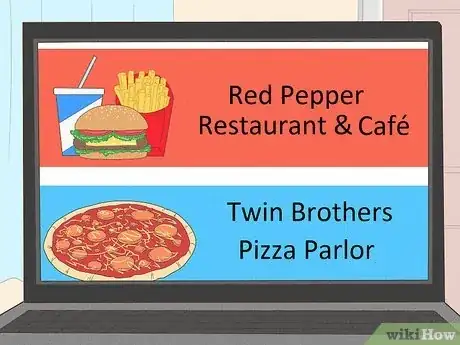
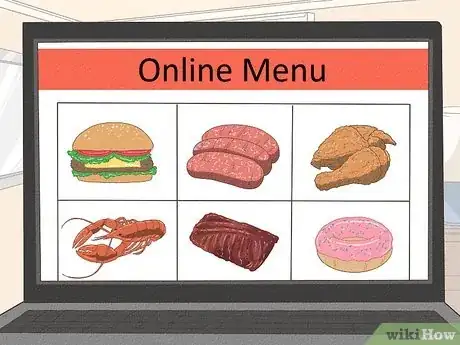


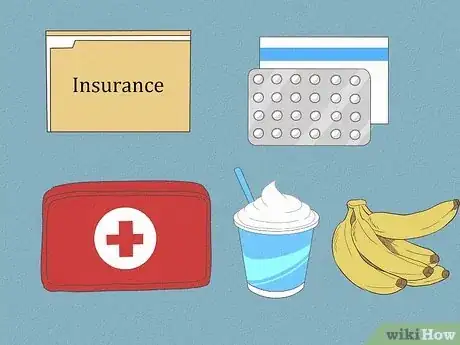



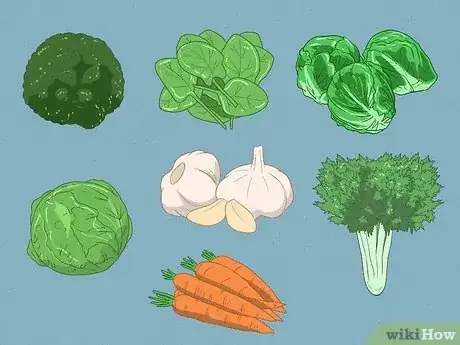
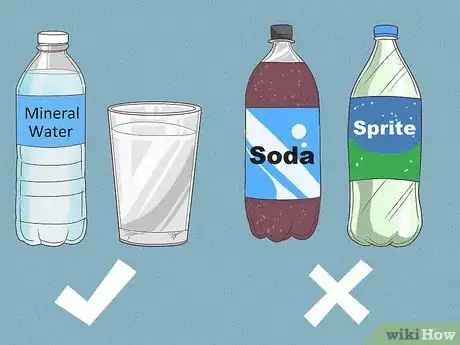

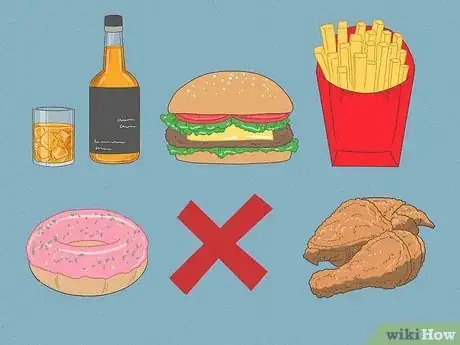

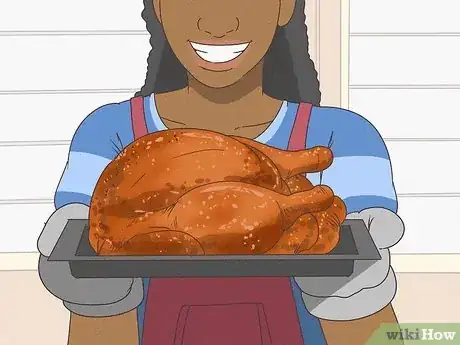
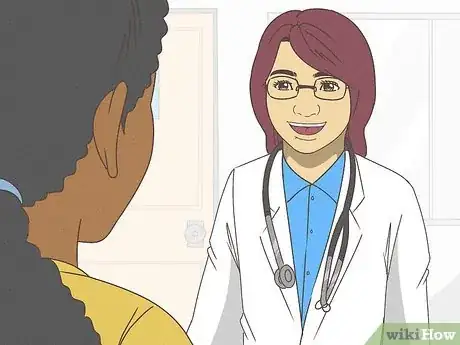










































Medical Disclaimer
The content of this article is not intended to be a substitute for professional medical advice, examination, diagnosis, or treatment. You should always contact your doctor or other qualified healthcare professional before starting, changing, or stopping any kind of health treatment.
Read More...